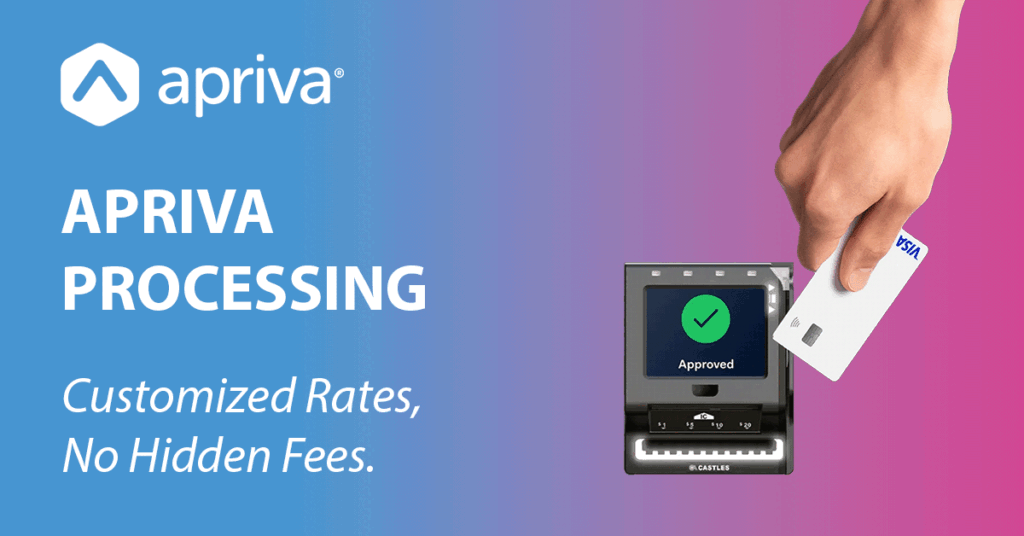Apriva this week announced partnerships with AveriGo and Vagabond to offer innovative mobile shopping and payment solutions.
Apriva offers an adaptive platform for secure mobile communications and omnichannel payments.
Both its new partners are in the vending and F&B service industries.
AveriGo offers the Averiware business platform — a cloud-based suite of software solutions ranging from financial management and CRM to asset, inventory, delivery, and field service management, as well as a complete micro-market system.
A micro-market is a small local business, generally one that is a small storefront or kiosk.
“Usually the overhead is very small and the products and services represent small outlays for the buyer. Think haircuts and popcorn stands,” said Michael Jude, program manager at Stratecast/Frost & Sullivan.
Vagabond offers technologies for the convenience services industry. Its workplace payments application, vīv, enables mobile pay at vending machines and convenience markets, as well as order-ahead and delivery services at cafeterias and restaurants, among other things.
It also provides data-driven services to consumer packaged goods companies to enable targeted promotion to consumers based on their buying habits.
The partnerships “seem to be extensions of a larger move toward cashless payments, though in slightly different contexts,” said Nicole France, principal analyst at Constellation Research.
The Apriva-AveriGo partnership has a broader market application that “builds on the kinds of innovation we’ve seen from the likes of Square and PayPal that make it easy for small-scale vendors to take payment for their services,” she told CRM Buyer.
The Apriva-Vagabond partnership “seems squarely aimed at frictionless payments for a wide range of transactions, though limited to student populations,” France noted.
“Keep in mind that this is a generation that’s grown up on apps like Venmo, so for them this is more a question of meeting latent demand rather than requiring a major behavior change,” she said.
Apriva and AveriGo
Apriva and AveriGo announced a patent-pending mobile solution that lets vending operators set up and run micro-markets without incurring upfront equipment, network or software costs, or needing technology expertise.
It consists of the AveriGo Markets Bluetooth beacon, a secure smartphone app jointly built by the two, and a cloud application.
The mobile app integrates the AveriGo Markets functionality, supports credit and debit purchases from consumer cards, and leverages Apriva’s expertise in mobile payments. It essentially turns each shopper’s smartphone into a personal kiosk once they download the app.
The Bluetooth beacon is placed at the micro-market’s location. It transmits a unique ID tied to that location that makes the market visible and lets the app know which product catalog to fetch from the cloud application. Shoppers then browse or search the catalog and scan the items they want to purchase, then pay for them with a credit or debit card, all on the app.
The app eliminates queues and wait times for shoppers. It also provides vending operators with instant access to rich data on market traffic, sales, inventory and shopping behavior.
“All you need is a cooler, some shelves, and our Bluetooth beacon at each location,” said Wilfred Martis, vice president of marketing at AveriGo. “Shoppers simply download our app and they’re ready to grab, buy and go.”
Complexity is “anathema to a small business,” Frost’s Jude told CRM Buyer. “Anything to reduce complexity also reduces the barrier to entry.”
The solution delivers “the reliable, secure payment options vending operators — and their vending consumers — expect when buying from unattended markets,” said Apriva president David Riddiford.
“If a business owner can essentially just worry about mowing lawns or whatever, and offload all of the complexity associated with transaction management, then it is a good deal,” Jude said.
“I went to a small hole-in-the-wall fish and chips place the other day, and it was painful placing my order,” he remarked. “I had to wait in a long line … . The hold up was that the gal behind the cash register was double-tasking: answering questions and running credit cards. This would greatly streamline such a business.”
However, the rich data the app provides to vending operators “could be perceived as threatening by someone if it approached the level of personally identifiable information,” Jude cautioned.
Apriva and Vagabond
The partnership between Apriva and Vagabond will let college students use their virtual campus cards on Vagabond’s vīv mobile payments app over Apriva’s network at campus vending machines and micro-markets.
“Rather than a credit card, you would have an app that maps back to a credit card,” Jude observed. “This is pretty much like Apple Pay.”
Introduced at Google Cloud Next in 2017, vīv instantly delivers sales data to operators’ enterprise resource planning systems. Brands can influence consumer buying behavior in real time, because vīv links a known product with a known user at a particular location.
The Apriva platform integrates with all major North American campus card systems.
In addition to providing engagement, vīv establishes direct relationships with consumers so operators and brands can learn their preferences. Its geolocation capabilities, powered by Vagabond’s partnership with Google, let it know shoppers’ locations.
“There is nothing wrong with using a person’s location if they grant permission to do so,” Jude said. However, “it would be easy to step over the line here.”
The Thorny Privacy Tangle
Privacy is a major issue these days. Following are just a few privacy controversies in the spotlight:
- Facebook is under fire over privacy issues;
- Lawmakers have called on the United States Federal Communications Commission to investigate reports that AT&T, T-Mobile and Sprint have been sharing access to customers’ location data; and
- The U.S. Federal Trade Commission has mounted an investigation of ISPs’ data privacy practices.
There is the potential for customer data to be misused with the Apriva and partners’ solutions, Constellation’s France said, “but that’s more an issue of policy and regulations rather than the solutions themselves.”
Note: this article originally appeared here.




